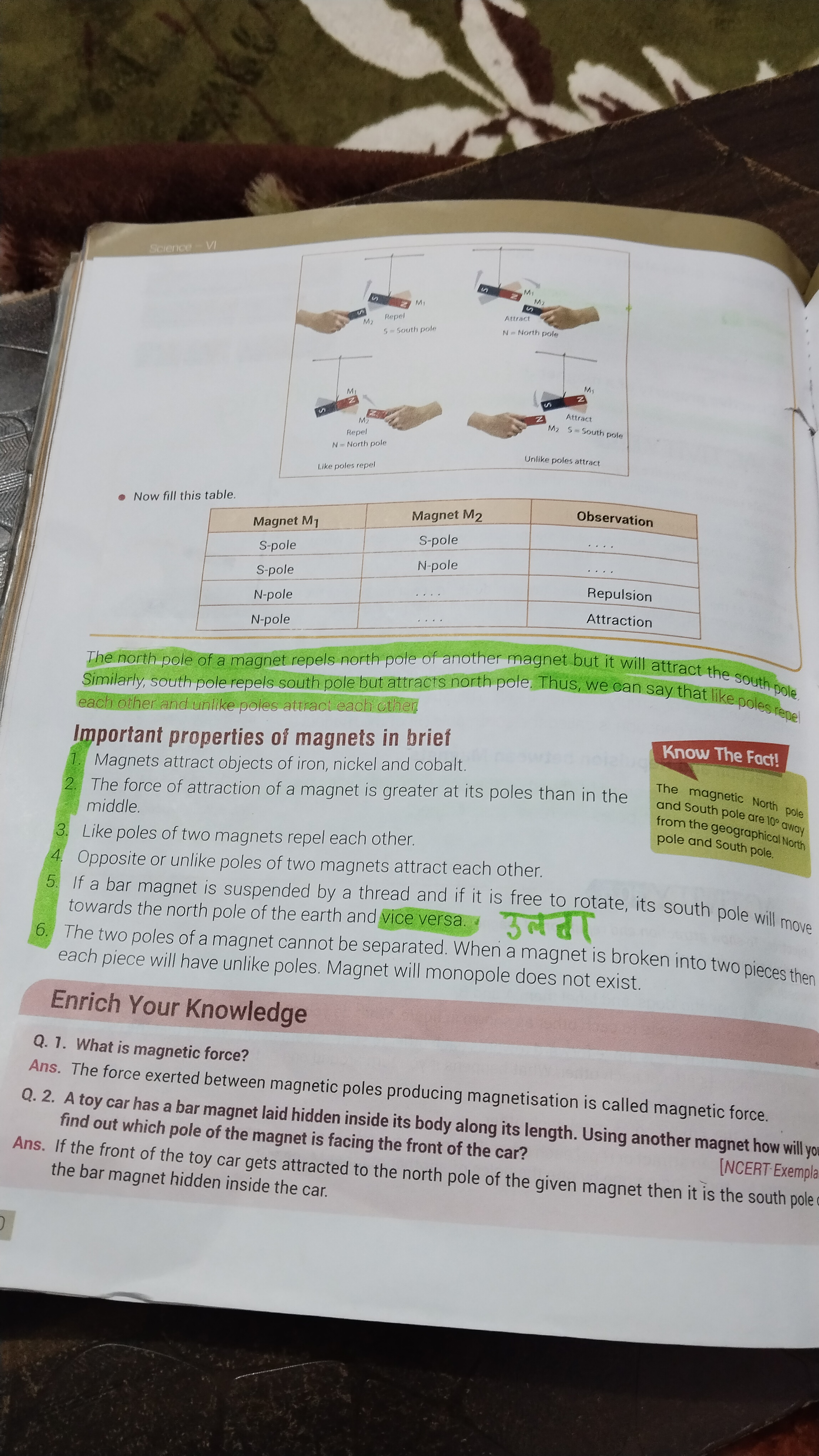Now fill this table: Magnet M1, Magnet M2, Observation.

Understand the Problem
The question involves understanding the behavior of magnets, specifically how they interact based on their poles. The user is expected to fill out a table based on the observations of magnet interactions.
Answer
S-pole & S-pole: Repulsion; S-pole & N-pole: Attraction; N-pole & N-pole: Repulsion.
When Magnet M1 is an S-pole and Magnet M2 is an S-pole, the observation is repulsion. When Magnet M1 is an S-pole and Magnet M2 is an N-pole, the observation is attraction. When Magnet M1 is an N-pole and Magnet M2 is an N-pole, the observation is repulsion.
Answer for screen readers
When Magnet M1 is an S-pole and Magnet M2 is an S-pole, the observation is repulsion. When Magnet M1 is an S-pole and Magnet M2 is an N-pole, the observation is attraction. When Magnet M1 is an N-pole and Magnet M2 is an N-pole, the observation is repulsion.
More Information
Magnetic poles exhibit interaction behaviors where like poles repel and unlike poles attract. This concept is foundational in understanding magnetism and is used in various scientific and engineering applications.
Tips
Ensure to correctly identify the poles of the magnets in each scenario to avoid errors in determining attraction or repulsion.
AI-generated content may contain errors. Please verify critical information